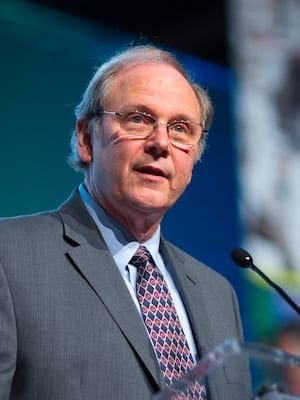Many persons feel they “know” Baptists as a group because of the unkind words of a few Baptist individuals or denominations.
Indeed, some very public Baptists have made statements highly offensive to persons of other faiths – and, perhaps surprisingly, disturbing and embarrassing for historic Baptists who remember their roots and denounce such judgmental, unkind sentiments.
Baptists, like adherents of all religions, are a multicultural and wildly diverse lot, exhibiting different personal, social, political and theological perspectives.
Those Baptists, however, who do recall their historic values will courageously champion religious freedom.
Thomas Helwys (1550?-1616?), 16th-century Baptist forebear, opposed the religious and political establishment in England and separated his congregation from the Anglican Church.
In 1612, he wrote that “[James 1] has no authority as a king but in earthly causes… [for] men’s religion to god is between God and themselves… Let them be heretics, Turks, Jews or whatsoever, it appertains not to the earthly power to punish them in the least measure.”
For his viewpoint, Helwys was thrown into London’s Newgate Prison, in whose damp cell he died around 1616.
His voice had been silenced, but some historians say his pronouncement “was the first statement of radical religious freedom to be published in English.”
Roger Williams (1603?-1683), another English cleric, “campaigned against the enforcement of religious conformity by civil authorities” in the Massachusetts Bay Colony, but in 1635 was exiled “under pain of death for his religious convictions.”
Establishing the first Baptist church of America in the colony of Rhode Island, he wrote a tract in 1652 that inquired “whether or not such as may hold forth other worships or religions, Jews, Turks or anti-Christians, may not be peaceable and quiet subjects, loving and helpful neighbors, fair and just dealers, true and loyal to the civil government.”
The question was rhetorical because Williams believed all persons could be peaceful, loving, helpful, just and loyal neighbors.
Eighteenth-century Baptist Isaac Backus (1724-1806) lobbied the first Continental Congress in 1774 and came away with a resolution, signed by John Hancock, that “acknowledged the Congress’ ‘sincere wish’ to extend ‘civil and religious liberty’ to every denomination.”
John Leland (1754-1841), a fellow Baptist, at a legendary meeting near Orange, Va., threatened to oppose James Madison as a candidate for Virginia’s ratifying convention and agreed not to do so only after extracting a promise that Madison would pursue explicit protection for religion in the Bill of Rights.
That pledge led to the First Amendment to the U.S. Constitution: “Congress shall make no law respecting an establishment of religion, or prohibiting the free exercise thereof.”
Honoring this spirit of freedom, the Baptist Joint Committee for Religious Liberty – begun in 1936 in Washington, D.C., and funded by 14 national Baptist bodies – operates today as the “best-known Baptist agency lobbying in behalf of religious liberty.”
Today, many Baptists who perceive themselves as “free and faithful” Baptists in this historic way are involved in interfaith dialogue, cooperation and friendship.
In Phoenix, for example, Paul Eppinger creatively guides the Arizona Interfaith Movement, an organization of 21 religious groups that convenes Faith Forums on topics like “forgiveness and reconciliation” or “texts of terror in scriptures of faith,” hosts multi-religious artists in Voices of Faith Concerts, builds Habitat for Humanity interfaith houses, and sells Golden Rule interfaith Arizona license plates.
In Nashville, visionary Robert Parham directs the Baptist Center for Ethics, an agency that has recently produced two highly regarded documentary films that tell important stories of interfaith engagement: “DifferentBooks, CommonWord,” which recounts examples of Baptist-Muslim relationship-building in America after Sept. 11, 2001; and “SacredTexts, SocialDuty,” which focuses on various Jewish, Christian and Muslim perspectives on government taxation.
In addition to individual Baptists like Eppinger and Parham who value our pluralistic society, “free and faithful” Baptist congregations across the country are reaching out to persons across religious boundaries.
Members of First Baptist Church of Seattle have worked alongside Ahmadiyya Muslims to feed the homeless in their community and were invited guests at the opening of a new mosque in Redmond, Calif.
Parishioners of Wilshire Baptist Church and Temple Emanu-el in Dallas have a decade-long relationship of worship pulpit-exchange and congregational shared meals and are embarking on a Jewish-Baptist exploration of the Holy Land in April 2012 co-led by their rabbi and pastor.
In Norman, Okla., when local Muslims were afraid after Sept. 11 that violent reactions might be aimed at their mosque or families, Baptists from North Haven Church offered them protection, comfort and even rides to the supermarket for Muslim women who felt too intimidated to go outside alone.
Beyond these local instances of neighborliness and solidarity, there are also institutional expressions of Baptist interfaith commitment.
Five North American Baptist conventions joined with the Islamic Society of North America to cosponsor the first National Baptist-Muslim Dialogue in Boston in January 2008; the second national conference and a series of regional workshops are being projected for 2012.
Finally, the Baptist World Alliance, which represents 218 member Baptist bodies in 120 countries, was so struck by the peaceful initiative of 138 global Muslim scholars who in 2007 crafted “A Common Word between Us and You” that they not only sent a very thoughtful response that appears on the official website of ACommonWord, but also established a permanent Commission on Baptist-Muslim Relations.
It cannot be denied that Baptists on the whole still have many sins of intolerance and unkindness for which to repent.
Nonetheless, there are historic Baptists who treasure their heritage of religious freedom and whose efforts to relate to and learn from persons of other faiths should be recognized.
It is the stories of these good neighbor Baptists that I hope will be told and remembered.
RobSellers is Connally Professor of Missions at Logsdon School of Theology, Hardin-Simmons University, Abilene, Tex. He is a member of the board of trustees of the Council for a Parliament of the World’s Religions. His column first appeared on the Council’s website.

